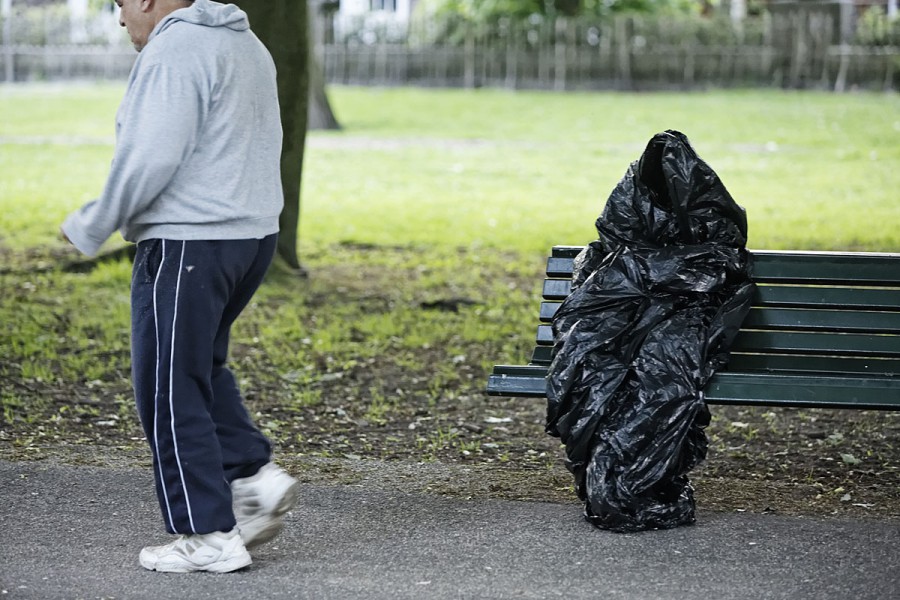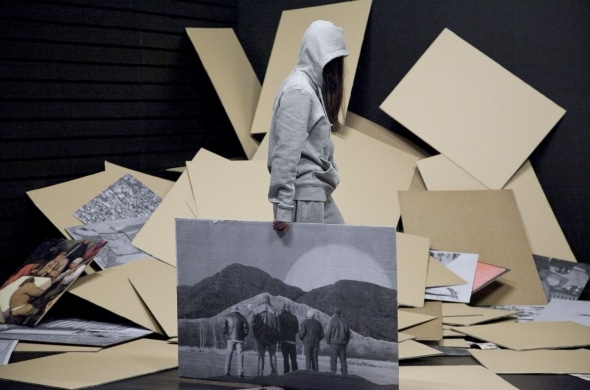Het Veem is een klein maar belangrijk theater en onofficieel productiehuis dat uitkijkt op de Houthavens in Amsterdam. Het huis is sinds jaar en dag de thuishaven voor internationaal opererende, hedendaagse podiumkunst. Een plek waar de kunstenaar en zijn of haar experimentele werk nog centraal staan. Sinds in 2014 Anne Breure directeur werd, draagt het als toevoegsel House of Performance.
Met Breure is het Veem weer een echte voortrekker geworden, niet alleen door de heldere artistieke beleidskeuzes, maar ook door de constructieve allianties die ze aangaat en haar heldere communicatie met publiek en politiek.

Deze belangrijke inspanningen, zeker ook voor Amsterdam, waar de ontwikkeling van dans al ruim een decennium stagneert, zijn jammer genoeg niet gehonoreerd door het landelijke fonds. Het Fonds Podiumkunsten (FPK) verstrekt sinds de bezuinigingen van Zijlstra subsidie per voorstelling, afhankelijk van de zaal-grootte. Op basis van prognoses van verkochte voorstellingen krijg je geld. Achteraf word je keihard afgerekend.
Productie draaien
Zo’n systeem biedt geen plaats aan Veem, met zijn inzet op ontwikkeling van hedendaags werk en discours. Structurele subsidies zijn er vooral voor conventionele gezelschappen, die flink productie draaien.
Dat merkte ook dansgezelschap ICK. Dat ontsloeg haar curator-gastkunstenaars, nadat men berekend had dat er geen andere keuze was, althans, zo vertelt de nieuwe artistiek coördinator Michiel Nannen: ‘Het fonds geeft in de huidige regeling alleen maar geld aan makers die productie draaien. En net als bij de Amsterdamse Kunstraad waren ze kennelijk niet te spreken over de talentontwikkeling van ICK.’ Dus hief ICK het vreselijk interessante programma van Renée Copraij op.
Op deze manier boet Amsterdam nog verder in aan internationale artistieke relevantie op het gebied van dans en performance. Steeds vaker laat men deze programmering over aan beeldende-kunstinstellingen.
De vernieuwing in de dans moet nu komen van ISH en het Nationale Ballet, zij kregen wel ontwikkelsubsidies.
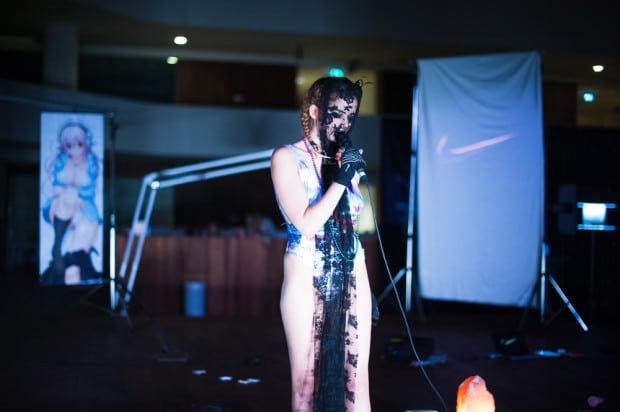
Buitenland
Internationaal successvolle makers, die via ICK, Frascati, Veem, soms ook Dansateliers Rotterdam en vroeger ook via Grand Groningen, hun werk uitbouwden, zoals bijvoorbeeld Aitana Cordero, Jan Martens of Florentina Holzinger vertrekken dan gewoon naar het buitenland. De vraag is natuurlijk waarom de verschillende commissies bij de fondsen zo allergisch reageren op nieuwe ontwikkelingen in de dans en de performance.
De Amsterdamse dans- en performance-scene heeft dus nog steeds last van een nu al decennia durende, landelijke vete over wat dans is (via platte indelingen als neoballet, modern of SNDO – dansdans of conceptueel). Maar de ooit vanwege nieuwe dans, mime en fysiek theater zo vermaarde hoofdstad heeft ook al jaren last van een niet functionerende danswerkplaats. Die stond sinds 1993 onder leiding van Ger Jager en beleefde onder de naam Dansmakers een nieuwe doorstart in Amsterdam-Noord.
Danshuis
Nog afgezien van de perikelen rond Het Danshuis en de dubieuze rol die Ger Jager daarin speelde, kon het project nooit echt doorgroeien tot een plek waar makers hun carrière serieus konden opbouwen. Inhoudelijk en organisatorisch hing Dansmakers van ad-hocbeslissingen en grootspraak (internationale programmering, productiehuis) aan elkaar.
Ger Jager is dit najaar, onder druk van de subsidieperikelen, met stille trom vertrokken. Artistiek leider Suzy Blok vecht nu, na alle negatieve beslissingen, via de rechter voor het voortbestaan van Dansmakers. Uitspraak 13 januari.
Heldere koers
Veem directeur Anne Breure en haar bestuur varen ondertussen een heldere koers. Andere gezelschappen en instellingen buigen alsmaar mee met nieuwe overheids-directieven. Ze stapelen het ene takenprogramma op het andere, in de hoop daarmee concurrent-aanvragers al bluffend voorbij te streven. Veem heeft echter gekozen voor een meer verantwoorde keuze, eentje waarvan je zou willen dat meer instellingen dat deden.
Een voorbeeld hiervan is het 100-dagen-voorstel als reactie op het advies van de Amsterdamse Fonds van de Kunst. Dat fonds koppelde een uiterst positieve beoordeling aan het gelijk blijven van de (zeer bescheiden) subsidie. ‘Als we niet meer geld krijgen, dan gaan we gewoon een deel van het jaar dicht’, redeneerde Breure met haar bestuur.
Veem heeft kennelijk genoeg van het onderbetalen, het uitknijpen van eigen en andermans buffers. Duidelijk heeft men ook genoeg van het steeds maar meebewegen met de politiek en de inhoudelijke compromissen die dit met zich meebrengt. Volgende week, op 20 december, volgen de uitspraken van de gemeente en het AFK over de herziene voorstellen van de Amsterdamse kunstinstellingen. Het belooft spannend te worden.
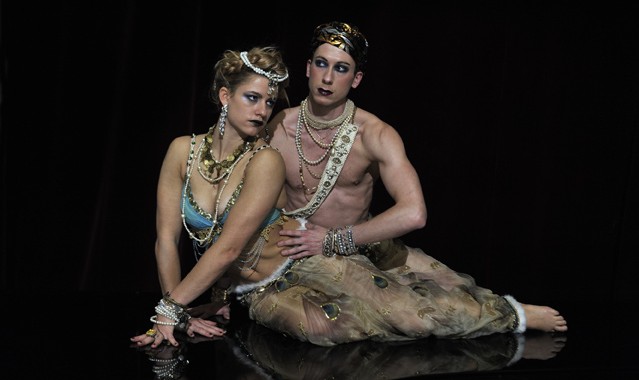
Gesloten bolwerk
Een ander opvallend aspect van Veem en Breure is de manier waarop zij aan publieksontwikkeling doen. Zo zijn er buurtinitiatieven, maar ook een internationale curatoren-voorstelling The Curators piece waarin de rol van de bemiddelaar bevraagd wordt. Veem neigde onder vorige directeuren een wat gesloten bolwerk te worden, waar met name collega’s en ingewijden kwamen kijken en voorstellingen vaak doorreisden naar een volgend buitenland in plaats van Nederland op meerdere plekken aan te doen.
De pilot VERY NOW, die Breure samen met Rainer Hofmann van Spring opzette moet daar verandering in brengen. Het kleine festival toonde de afgelopen weken in Tilburg en Groningen werk van Riebeek&Holzinger, Rodrigo Sobarzo, Oneka von Schrader en Florian Hetzel. De tournee eindigt dezer dagen in het Veem in Amsterdam.

Judith Blankenberg, die voorheen programmeur was van De Keuze in Rotterdam en in mei dit jaar als programmeur van het doorgestarte Grand Theatre in Groningen begon, is enthousiast over de pilot. ‘Het was geen heel groot publiek dat op de voorstellingen afkwam, maar de mensen die kwamen waren heel blij dat er in Groningen weer iets te zien was dat niet mainstream is. Studenten, mensen van de academies, uit de beeldende kunst en van de universiteit. Ik heb natuurlijk niet iedereen gesproken, maar toeschouwers waren echt blij verrast met het programma.’
Hoop in Groningen
‘Als programmeur heb ik mij altijd bezig gehouden met de grensgebieden tussen disciplines. Ik hou ook erg van podiumkunstenaars die de vraag stellen: wat doen we hier nu in deze tijd, in dit theater. De pilot VERY NOW laat duidelijk zien dat er ruimte is voor een meer experimentele programmering. Het oude Grand is natuurlijk mede ten onder gegaan vanwege het wegvallen van het productiehuisbudget door de bezuinigingen van Zijlstra en de stad die niet compenseerde.’
‘Tot nu toe heeft het nieuwe Grand net genoeg geld om eens in de maand producties te programmeren. De rest van de maand doen we met wat er vanuit de stad komt aan activiteiten en laten ook residenten zien wat ze aan het doen zijn. Als dadelijk de gelden van het regionaliseringsbeleid bij het fonds vrijkomen, heb ik goede hoop dat ik deze experimentele programmering kan doorzetten.’
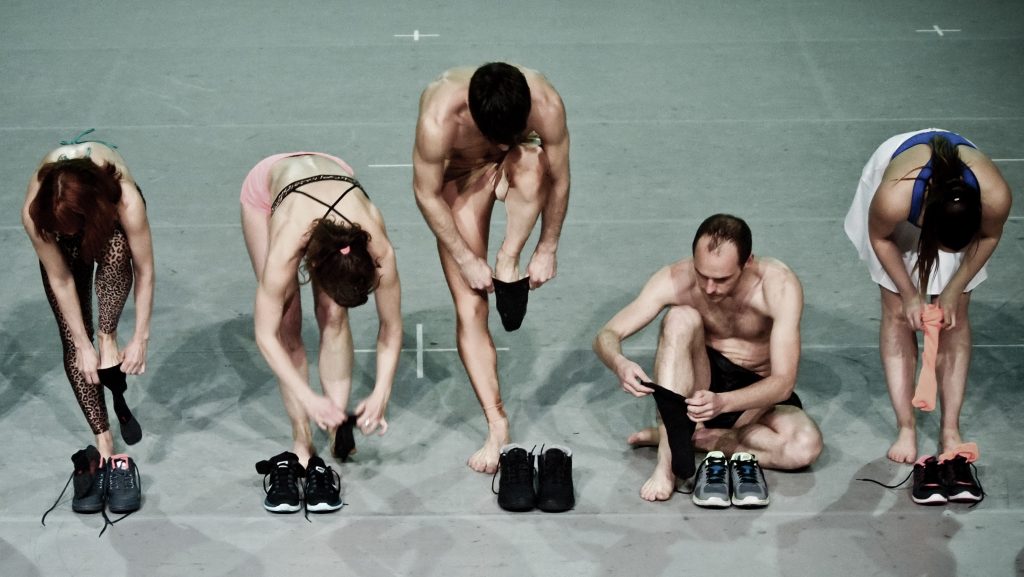
Discussie
Feit blijft dat er door de verschillende subsidie-beschikkingen een behoorlijke hap is genomen uit het subsidiegeld voor experimenteel werk in dans en performance. Veem organiseert vandaag een discussie, onder de vrolijke noemer Wishful Thinking. Belangrijke spelers in de Amsterdamse en nationale scene van eigentijdse dans en performance gaan met elkaar in het openbaar het gesprek aan: Anne Breure ontvangt Rainer Hofmann, Suzy Blok en Michiel Nannen.
Ook BAU is voor meer openheid van bestuur, meer stem voor de kunstenaars, en gezamenlijk optrekken ondanks artistieke meningsverschillen. Dit platform van onafhankelijke dans- en performance makers in Amsterdam stuurde een alarmbrief over de Amsterdamse situatie. Wordt vervolgd.
Voor meer informatie: discussie Whisful Thinking en het programma Very Now vandaag tot en met zaterdag in Veem House voor Performance.
